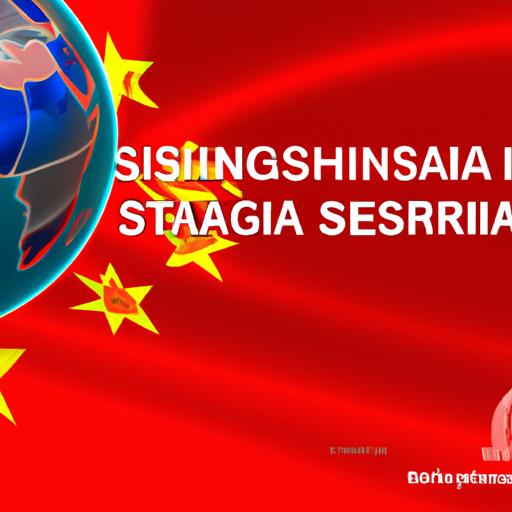In a move that has sent ripples of concern across the international community, the Group of Seven (G7) has issued a stark warning about the potential long-term threat posed by China’s support for Russia to European security. The alliance’s condemnation of this burgeoning relationship underscores the complex geopolitical landscape facing the region, as global powers continue to jockey for influence and dominance. In this article, we delve into the complexities of this evolving dynamic and explore the implications for European security in the face of this powerful alliance.
China’s Increasing Influence in Europe
China’s growing support for Russia poses a significant long-term threat to European security, according to a recent warning from the G7. As China continues to strengthen its ties with Russia, concerns have been raised about the potential implications for stability in Europe. The G7’s warning comes amid growing tensions between Russia and Western countries, with China’s backing adding a new dimension to the geopolitical landscape.
In light of these developments, European leaders are facing increasing pressure to address the implications of China’s expanding influence in the region. The strategic partnership between China and Russia has the potential to bring about significant changes in the balance of power in Europe, requiring a proactive approach from European countries. As China’s presence continues to grow on the continent, policymakers are tasked with finding ways to navigate the complexities of this evolving relationship while safeguarding European security interests.

Implications for European Security
As China continues to show unwavering support for Russia amid escalating tensions with Ukraine, the G7 nations have issued a stark warning about the long-term . The alliance of the world’s most powerful democracies has raised concerns that China’s backing of Russia could pose a significant threat to stability in the region.
The G7 has emphasized that China’s stance on Russia’s actions in Ukraine could have far-reaching consequences for European security. The alliance has urged for a united front in response to this potential threat, underlining the importance of solidarity among European nations to safeguard the stability and security of the continent. The G7’s warning underscores the need for continued vigilance and cooperation in the face of evolving geopolitical challenges.

Strategies to Address the Long-term Threat
One of the key strategies that the G7 nations are considering to address the long-term threat of China’s support for Russia is to strengthen alliances with other like-minded countries. By forming strong partnerships with countries that share similar values and interests, G7 nations can create a united front against any potential aggression from China and Russia. This collaborative approach will not only help to deter any future threats but also send a strong message that the international community is committed to upholding peace and security.
Another effective strategy is to increase diplomatic efforts to engage with China and Russia on the issue of European security. By opening up channels of communication and fostering dialogue, G7 nations can work towards finding peaceful resolutions to any disputes or conflicts that may arise. This proactive approach will help to de-escalate tensions and build trust between all parties involved, ultimately contributing to a more stable and secure global environment. It is crucial for the G7 nations to prioritize diplomacy and dialogue as a means to address the long-term threat posed by China’s support for Russia.

Collaboration Among G7 Nations
The G7 nations have raised concerns over China’s support for Russia, highlighting it as a ‘long-term threat’ to European security. This collaboration between Beijing and Moscow has sparked apprehension among these leading global economies, with implications for strategic alliances and regional stability.
Amidst escalating tensions, the G7 has emphasized the need for unity and cooperation among member countries to address the evolving geopolitical landscape. By fostering diplomatic relations and sharing intelligence, these nations aim to counter potential threats and promote peace and security in the region. The collaborative efforts of the G7 serve as a crucial foundation for navigating complex challenges and safeguarding collective interests in an increasingly interconnected world.
In Conclusion
As China’s support for Russia continues to grow, the implications for European security are becoming increasingly concerning for G7 nations. The intricate balance of power and alliances in the global arena is shifting, and the long-term implications of this new dynamic are uncertain. As leaders navigate these challenges, it is crucial that they work together to address the complex web of geopolitical complexities that lie ahead. Only through cooperation and strategic thinking can we hope to navigate these turbulent waters and ensure the security and prosperity of our shared future.


